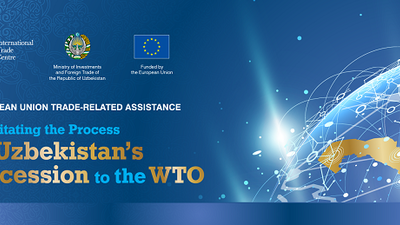
Agriculture and WTO accession: supporting trade negotiators to prepare for the challenges ahead (en)
Agriculture is a complex yet crucial topic for countries negotiating their entry into the World Trade Organisation (WTO). Many acceding countries can find it extremely challenging to enhance agricultural development in a WTO-consistent way.
In response to a request from the governments of several developing countries, the WTO and the International Trade Centre (ITC), with the support of the European Union project on Facilitating the Process of Uzbekistan's Accession to the WTO, held a virtual training course on the WTO Agreement on Agriculture on 12−22 October 2020.
The training helped participants advance their accession negotiations and equipped them to implement their post-accession obligations better.
The sessions helped participants from a wide range of countries, including Azerbaijan, Belarus, Bhutan, Iraq, Serbia, South Sudan, Sudan, Turkmenistan and Uzbekistan, to build a better and more detailed understanding of agriculture as a critical area in WTO accession negotiations. It also enabled participants to share their experiences.
The training was designed to be practical to maximize its impact on the carefully selected participants. Only delegates directly in charge of accessions and agricultural negotiations in their respective countries could join. Participants also had to have completed the WTO e-learning course on agriculture.
One participant, Ms. Lolita Irgasheva, Chief Specialist at the Ministry of Economic Development and Poverty Reduction of Uzbekistan, said she had had "an outstanding experience" on the course.
She valued "the unique chance to get familiar more in-depth with essential concepts of the agreement by virtue of which we, as policymakers, succeeded to comprehend in which direction to move further."
The substantive programme was tailored to respond to delegates' interests, and the organizers awarded certificates to participants when they completed the training.







